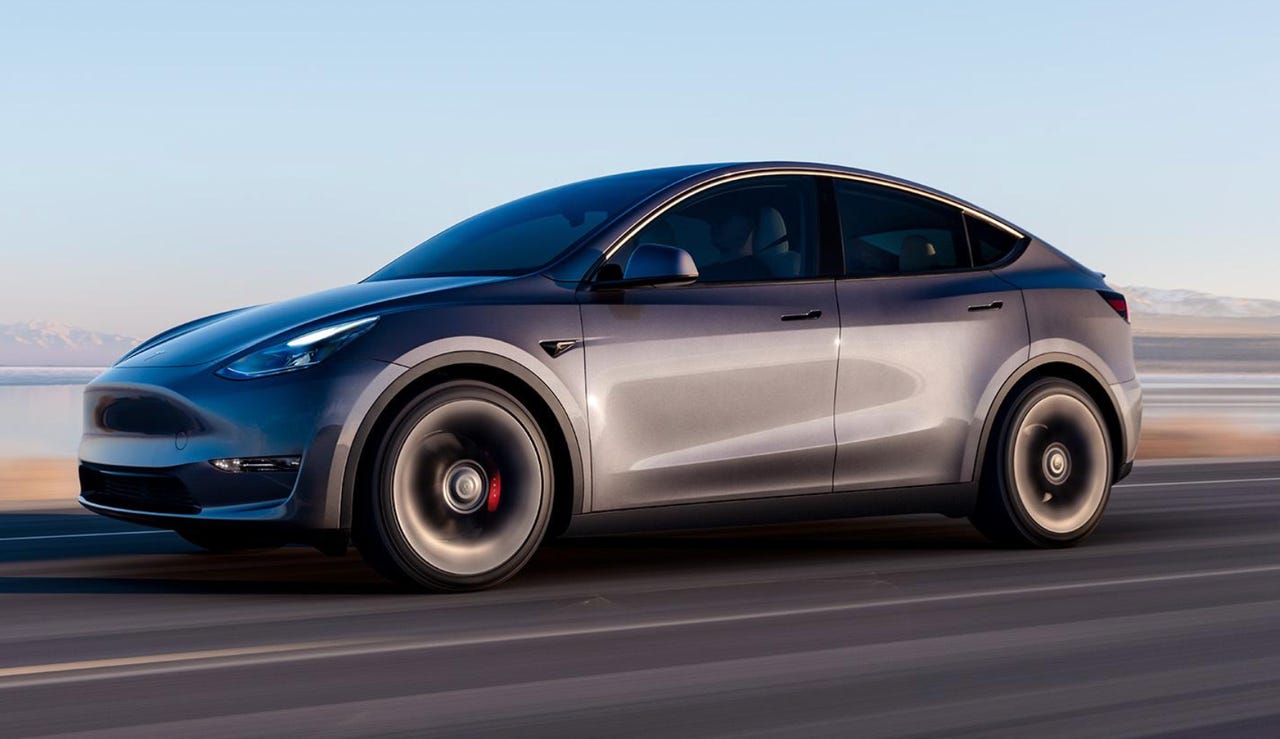































 Image: Tesla
Image: Tesla Tesla announced this week that it plans to remove all ultrasonic sensors (USS) from new cars and lean into "Tesla Vision" instead. This departure from sensors and a reliance on camera-only driver assistance deviates from what is typically used in the automotive industry -a combination of cameras and sensors.
What is the best electric car? The Tesla Model 3 is ZDNet's top pick. We researched the top EV brands and compared their electric car models by factors such as innovation, affordability, energy efficiency, and more. We also found the best cheap electric car and other honorable mentions.
Read nowHowever, as the past has shown, going against the industry's grain is basically part of Tesla's DNA.
"Tesla continues to buck the trend of the industry of adding more sensors to the overall sensor suite of Camera/Ultrasonic/Radar/Lidar," Mark Fitzgerald, researcher at Strategy Analytics, said to , distinguishing Tesla "from pretty much everyone else in the industry."
Ultrasonic sensors are typically used by vehicles to support anti-collision safety systems, helping to detect objects in near proximity and to assist with parking. Tesla assures consumers that the removal of the sensors will not affect consumer safety.
"Compared to radar-equipped vehicles, Model 3 and Model Y with Tesla Vision have either maintained or improved their active safety ratings in the US and Europe, and perform better in pedestrian automatic emergency braking (AEB) intervention," Tesla said Tuesday.
All Model 3 and Model Y cars built for North America, Europe, the Middle East, and Taiwan starting early October will no longer be built with ultrasonic sensors and will solely rely on Tesla Vision.
Also:Tesla Model Y receives highest overall safety score in new European assessment
In 2023, the Model S and Model X will undergo a similar rollout without the USS sensors as well. If you already have one of these vehicles with the USS sensors, no worries -the tech will remain intact on those cars.
So what is Tesla Vision? The term refers to Tesla's attempt to move away from traditional radars and sensors and depend solely on the suite of cameras on the vehicles to make driving decisions. The transition began in 2021 when Tesla removed radar from Model 3 and Model Y vehicles made in North America.
Tesla's move towards Tesla Vision is motivated by the intention to make the car's decision-making processes operate the same way a human would, with a vision-based system. "The automaker believes it best to try to replicate that purely with cameras and artificial neural nets and not let the radar data pollute the system," as Electrek noted.
Tesla Vision will still be able to provide the technology necessary for Autopilot, Enhanced Autopilot, FSD capability, and active safety features, according to Tesla. However, there are certain limitations to using Tesla Vision that Tesla has even acknowledged itself.
During the period of time that the company makes the transition from USS to Tesla Vision, cars that are not equipped with USS will be delivered with some features temporarily limited or inactive.
These limitations will be an inconvenience for customers, especially those who were drawn to Tesla because of its software.
"Owners are used to receiving new features and updates delivered over-the-air (OTA)," Chris Jones, chief analyst at research firm Canalys, said to . "It will be an inconvenience for new owners not to have the features for a period during the transition. Tesla must communicate effectively with those drivers impacted."
In addition to potentially disappointing and losing customers during the transition period, there is also added pressure to make sure that Tesla Vision is truly capable of doing what it says it can -if it can't, there won't be a backup system to rely on.
"The main risk in Tesla's strategy is losing redundancy -USS as back-up if there is a Tesla Vision error or malfunction," said Jones. "Reliability and safety will ultimately be the test of whether the strategy was the right one to follow."
Musk has been very vocal about his intention to get a fully self-driving car out on the market for years, first bringing up the idea in 2016. At an energy conference in Norway in August of this year, Musk reportedly announced his plans to get Tesla's self-driving technology ready for release by year-end.
Also:Elon Musk says Tesla Cybertruck is waterproof enough to cross rivers and lakes -and even seas
However, competitors in the market have always depended on the use of sensors to develop self-driving technology. The removal of USS from cars could possibly impact that vision Musk has of getting FSD out as soon as possible.
"Most other autonomous or semi-autonomous systems are adding sensor functionality, including imaging radar and lidar, to their higher-performing L2+ and L3/L4 systems, mostly for redundancy and all-weather performance," Fitzgerald said. "It has not been proven that Tesla Vision can perform in all of these conditions."
Since USS is mostly used for objects in near proximity and parking, it may not have any direct impacts on FSD, according to Jones.
Even if the technology does hold up and is successfully proven to be able to support a FSD vehicle, people may still be hesitant to purchase the FSD upgrade due to the novelty of Tesla Vision.
"Tesla risks attracting a lower customer uptake (attach rate) of the now more expensive FSD option if customers feel any doubt about its future capabilities," said Fitzgerald.
 Tags quentes :
Inovação
Transporte
Tags quentes :
Inovação
Transporte